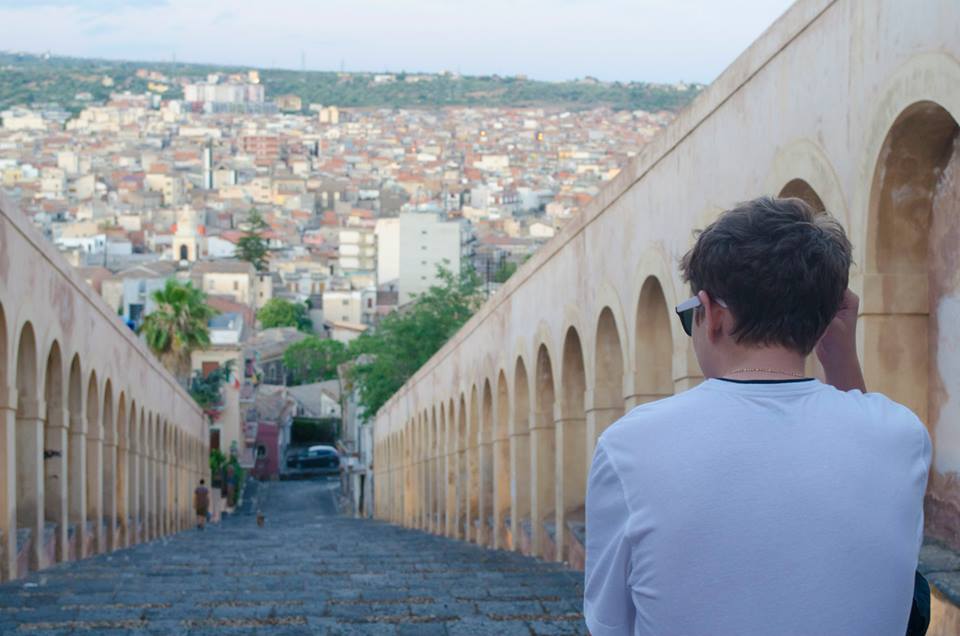

When you are away from home, meeting someone who shares your roots is always exciting. This becomes even more so when you are a fiercely proud Sicilian and this person also happens to be equally enthusiastic about your culture and origins.
Mike Kalmeta is a current study abroad student from Northeastern University. He grew up in Hawaii, but his dad’s family comes from Paternò, a small town close to Catania, the second largest city in Sicily. He told me all about his trips to Italy and to Sicily in particular, and we obviously ended up focusing on food for far too long- but that is a pretty normal conversation topic in Italy. Mike told me all about how he immersed himself in Italian culture by spending a month with his cousins in Paternò, and about the differences between Sicily and Mantova, a town in Northern Italy where Mike spent some time studying.
Of course, during his first of four trips to Sicily, Mike “met like 80 cousins,” because that is how Sicilian families work. However, all of these 80 people welcomed him as if they had known him forever, greeting his family in the airport with all kinds of presents (including, for some reason, a ceramic clock). When he returned to Paternò on his own this year, he made friends with his cousins’ Italian friends, learning not only Italian but also the Sicilian dialect, and ate a lot of food. It was then that he became addicted to arancini, fried rice balls filled with cheese and other mouth-watering stuffing that we Sicilians like to eat. We are now planning to make arancini together; Italians love bonding over food.
Comparing the warm yet rough land that Sicily is to Mantova, Mike noticed some truths about northern and southern Italian stereotypes. While people are colder in the North and their lunches don’t last four entire hours like they do in Sicily, Mantova is much cleaner than Paternò. Also, he told me that he noticed that Sicilians don’t really move off of the island. Many are too conservative to leave, and others remain in their hometowns because leaving their home, land, and families would be too heartbreaking. In Mantova, people are more cosmopolitan, they move from one city to the other and they seem to find leaving home less difficult. I am one of those rare Sicilians who left home, not because I did not love my hometown and Sicilian culture, but because I wanted to study in English and in a multicultural environment like JCU. Hearing Mike’s observation that Sicilians are so attached to their land made me proud.
I saved you from reading about most of our food-related conversation, so that your mouths don’t start to water too much. However, one thing you should know is that Mike is no longer a self-proclaimed “disgrace to [his] heritage;” he now can make pasta! It seems like living on his own in Italy has taught him to cook, and although he might not be as good an arancini maker as his Sicilian aunts, he could very well get there one day.
If all this talking about food made you hungry, check out JCU cooking classes!





